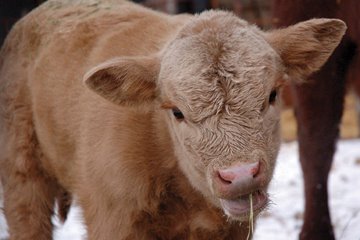by Karen Emilson
The difference between drought and flood is painfully obvious, but what isn’t so straightforward is why cattle producers in drought stricken areas can defer income, but those in flooded zones can not.
Afterall, a feed shortage causes hardship regardless of the weather conditions that caused it. With that in mind, Selkirk-Interlake MP, James Bezan, began working to get the legislation changed so that producers in his area who are forced to sell cows because of lack of feed, won’t be penalized by Revenue Canada.
Currently, the Income Tax Act allows farmers affected by drought to sell part of their breeding herd and defer that income to the following year. To defer, breeding herds must be reduced by at least 15 percent. Proceeds from deferred sales can be partially offset by the cost of buying back breeding animals the following year.
Bezan has been pushing to get the legislation changed to include flooding, not just drought, but the October election stalled progress and now it seems that the legislation may not be changed before year end—if it gets changed at all.
“I’m still working on it but nothing positive to report yet,” said Bezan.
MCPA Finance Chairman, Art Jonasson lives in the Interlake. He said that so far there haven’t been huge amounts of cows that have gone to market and he believes that is because producers are taking a “wait and see” attitude. Also, many of the people he has talked to don’t want to get out of the business and are reluctant to sell down their herds. Fortunately, the cattle were able to stay out on pasture until the end of November, shortening the feeding year by nearly a month.
“But who knows where guys will be come spring time,” he said.
On a somewhat brighter note, producers in both the flooded north and drought-stricken south are eligible for the Manitoba Forage Assistance program. The program partially covers the transportation costs to bring feed into affected areas.
A motion was passed at both the MCPA District 10 and 11 fall meetings that the program be made permanent and province wide in the future, and available to any producer who needs it. That will be brought to the floor in the form of a resolution for debate at the MCPA’s upcoming Annual General Meeting on December 11th in Brandon.
Welcome to the Online Edition of Cattle Country!
Updated with every new issue
Past issues will be available in the archive. If you are interested in reading Late Breaking News between paper deadlines, scroll down to the bottom of the page. The most recent information will be posted first.
Past issues will be available in the archive. If you are interested in reading Late Breaking News between paper deadlines, scroll down to the bottom of the page. The most recent information will be posted first.

Thursday, December 4, 2008
Labels:
James Bezan,
Tax deferral drought
Subscribe to:
Post Comments (Atom)

No comments:
Post a Comment